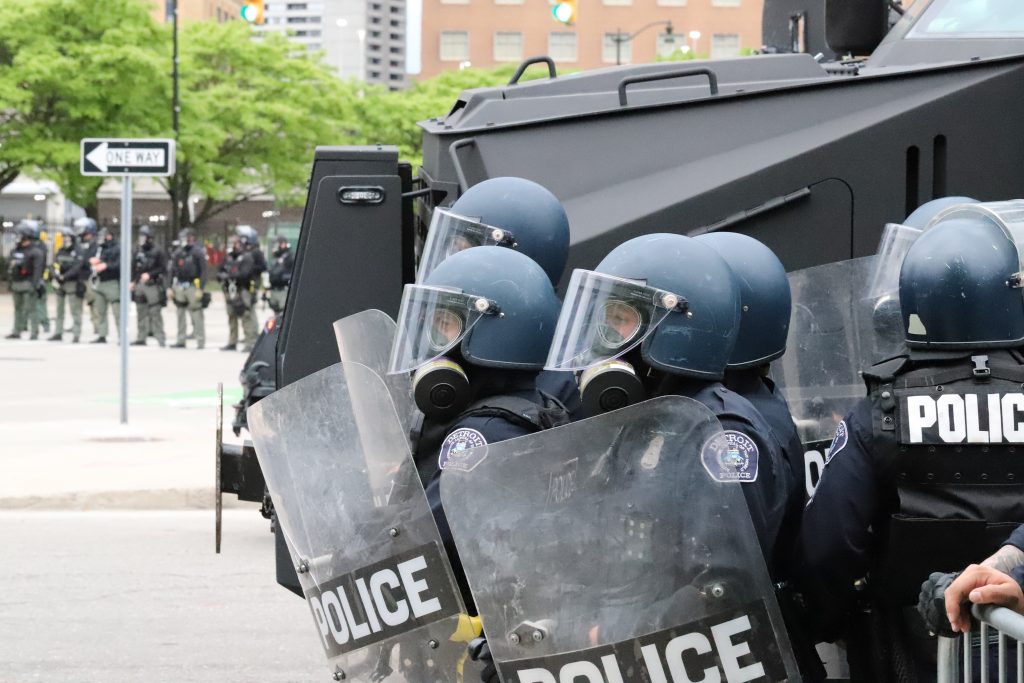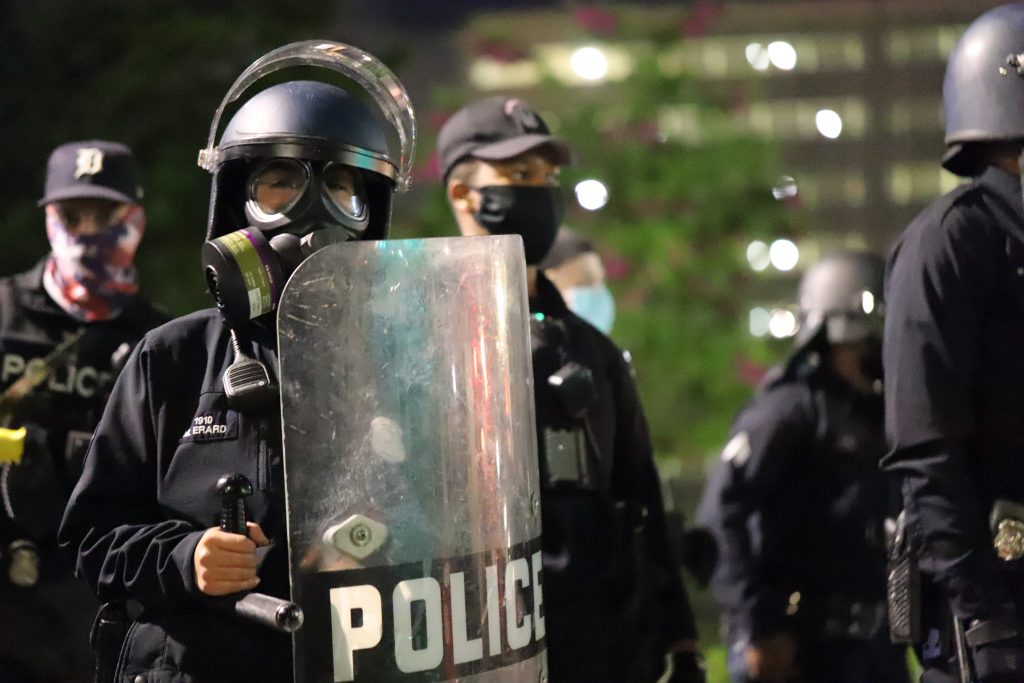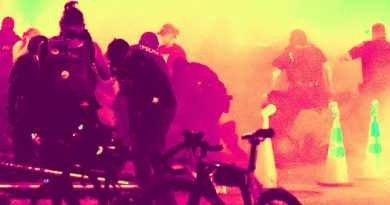Book Review: Rise of the Warrior Cop, by Radley Balko
In a society with increasingly visible, rampant vigilantism, militant white supremacists, and a gun craze gone wild, how should policing work?
I just finished Rise of the Warrior Cop, by Radley Balko. It’s a mesmerizing narrative, a well-researched critique, and, dare I say, a tour de excessive force— that traces the roots of US militarized policing the whole way back to the Roman Empire, where increasingly paranoid Praetorian Guards engaged political power play while ostensibly protecting emperors. While largely focused on the transformation of policing in the latter half of the 20th century, beginning with the creation of the first SWAT team in the 1960’s (though the origin of the concept is contested, with Philadelphia and Los Angeles both claiming the dubious honor of the invention, in 1964 and 1967, respectively), Balko also takes us on a long stroll through American history, looking at the very origins of the Fourth Amendment and English common law itself, and then exploring the evolution of the state, police power of the state, and modern policing itself.
Perhaps the biggest single repeated theme-and-variation in the book is the concept of the Fourth Amendment and dozens, if not hundreds, of examples of police essentially disregarding the Constitutionally enshrined notion of personal private space, favoring instead the use of disproportionate violence, often in cases of suspected, but not proven, cases of usually nonviolent, consensual, low-level drug crime.
The gist of the book is summarized thus:
- Most law enforcement in the United States lacks regard for the Fourth Amendment, and the Courts seem to side with law enforcement on this to a surprising degree. The jurisprudence behind this is really fraught and it’s problematic. Balko points out the common notion that jurisprudence isn’t simply a matter of the law being immutable. The law, rather, reflects culture, and there is a complex and symbiotic relationship between the law, culture, and the State at large. There are some watershed moments, however, indicated by the behavior of individual actors– Antonin Scalia being a notable one, as when he opined that the State should be able to admit criminal evidence even from an unconstitutional search and seizure. This seems troubling (but it fits with the growing conservative affinity for authoritarian power, I guess). This issue factors prominently not only into the question of what police obtain for evidence, but also what they seize in terms of civil forfeiture, which is why a number of police departments are able to drive around people’s sports cars when they’ve been indicted, if not convicted, of crimes, etc.
- There is often a blurry line between police’s inclinations to violate Fourth and First Amendment rights. Balko looks at Norm Stamper’s resignation following the disastrous Seattle police response to the 1999 WTO protests, where protesters were brutalized and where even non-protesters were arrested indiscriminately. Another example is the arrests preceding the 2008 Republican National Convention in Minnesota, where St. Paul police arrested journalists and activists, even raiding their private homes to detain them. Three hundred arrests– including the arrests of dozens of journalists- produced a grand total of 21 prosecutable offenses. A number of settlements cost taxpayers hundreds of thousands of dollars on top of the multi-million dollar tab for police overtime, flashbang grenades, tear gas, etc.
- Police are largely unaccountable for their actions. Balko looks at police departments around the country and examines dozens of cases of misconduct, brutality, manslaughter, and even murder, let alone a laundry list of crimes committed by police outside of direct police work (e.g. drug use by an individual, etc.). Very few complaints or instances of misconduct actually even result in disciplinary action, let alone termination or criminal/civil liability. Records are often destroyed. Police departments often settle lawsuits at massive public expense rather than allow them to go to trial, which could expose departments and officers to liability.
Taxpayers Spend Hundreds of Millions Per Year On Police Brutality Settlements. That Money Could Be Better Spent.
- The increasing militarization of police forces doesn’t actually reduce the rate of crime. It’s expensive. It’s flashy. And, yes, it’s “fun,” in the words of more than a few SWAT team members quoted in the book, who love to strap on their gear and play Navy SEAL for a predawn no-knock raid on someone suspected of smoking weed on their own private property.
- Police suffer from a self-reinforcing feedback loop of paranoia and “us-vs-them” mentality that is highly detrimental to the idea of effective policing. This last point is something that Balko talks about in passing, even using a number of very specific examples. But he spends very little time on the organizational psychology of it. Perhaps it’s because it’s a really complex issue. Or perhaps it’s more that Balko is concerned with the functionality of it rather than the psychology. There are, however, some disturbing examples. Balko notes that policing has, generally speaking, never been safer than it is today. The COVID19 pandemic has changed that, though: Far more officers die of COVID19 than are killed by violent criminals.
No doubt the book will fail to satisfy law-and-order conservatives who think Balko is some sort of namby-pamby commie ideologue. To these critics– who, I’m certain, absolutely don’t read my blog anyway– I’d say that Balko doesn’t take an “abolish the police” stance in the slightest. He seems to understand the purpose of especially armed police in American society. This is something I’ve struggled with as someone who has personally been hit by tear gas (thanks, future former gubernatorial candidate James Craig) but who also recognizes that there are a lot of crazy people in this country who own a lot of guns.
So, Balko doesn’t take some radical or hard line about eliminating police of prisons. Rather, he suggests the need for enhanced transparency and accountability. He notes that the rates of misconduct for things like SWAT raids actually decrease when more information or more transparency is specifically required. Police, as perhaps best embodied by the conduct of a long line of morally bankrupt police union decisions to protect crooked cops, are often interested in covering their own behinds. This means that they’re less likely to do something wrong when they know they’re being watched, or when they know that they’re accountable for whatever information might lead to some sort of misconduct. It’s funny how that works. Balko also considers something I’ve written about before: the idea of shifting funding from bloated police department budgets to human services that can address what account for the vast majority of calls to the police: nonviolent situations that need some sort of attention.
Irrespective of what approach we take, we should agree that whatever we’re doing now isn’t working.





